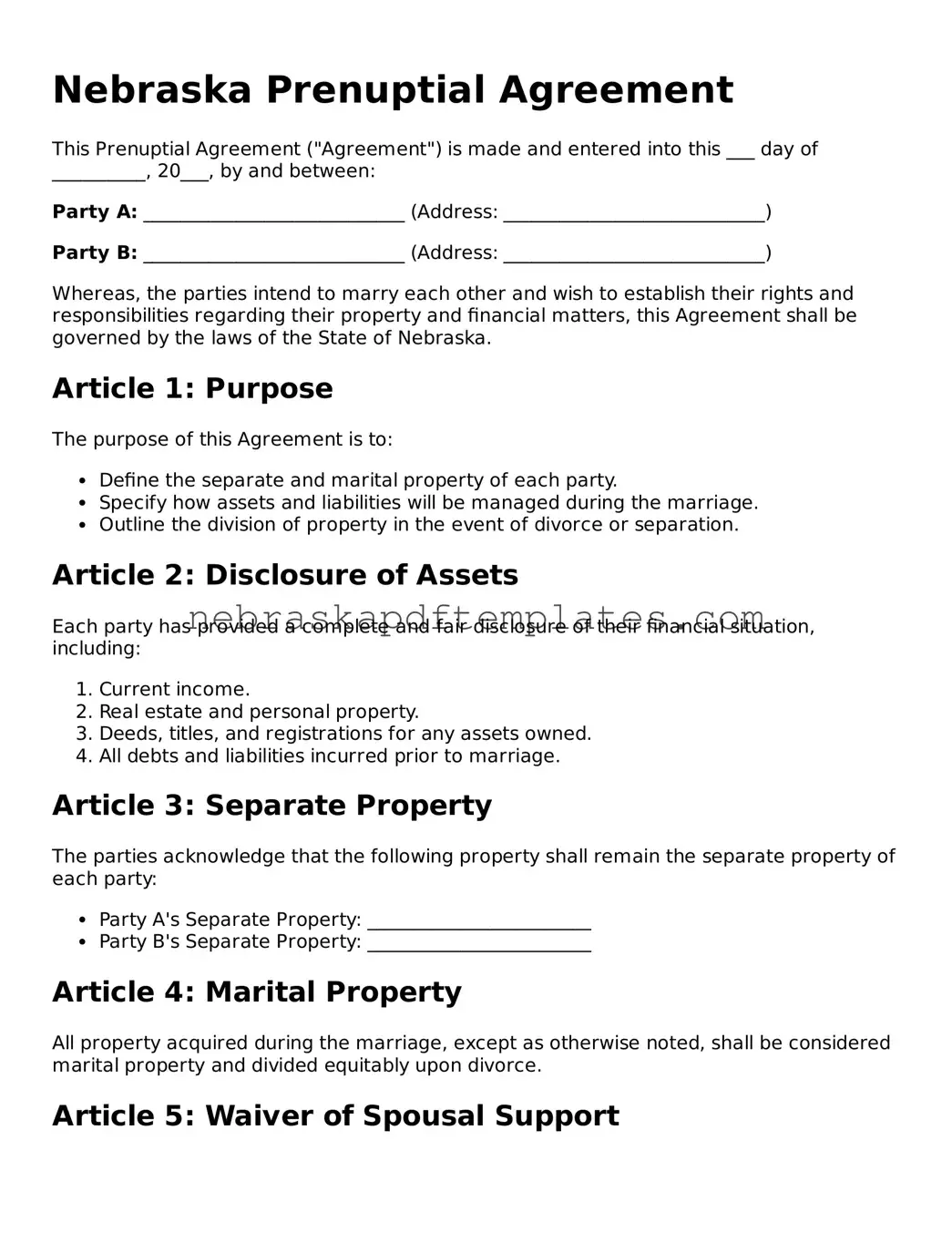Attorney-Verified Prenuptial Agreement Document for Nebraska
A Prenuptial Agreement in Nebraska is a legal document that couples create before marriage to outline the division of assets and responsibilities in the event of divorce or separation. This agreement helps provide clarity and protection for both parties, ensuring that each person's rights are respected. If you're considering a prenuptial agreement, take the first step by filling out the form below.
Access Editor Here

Attorney-Verified Prenuptial Agreement Document for Nebraska
Access Editor Here
Finish your form now
Finalize Prenuptial Agreement online — edit, save, and download effortlessly.
Access Editor Here
or
➤ Prenuptial Agreement
